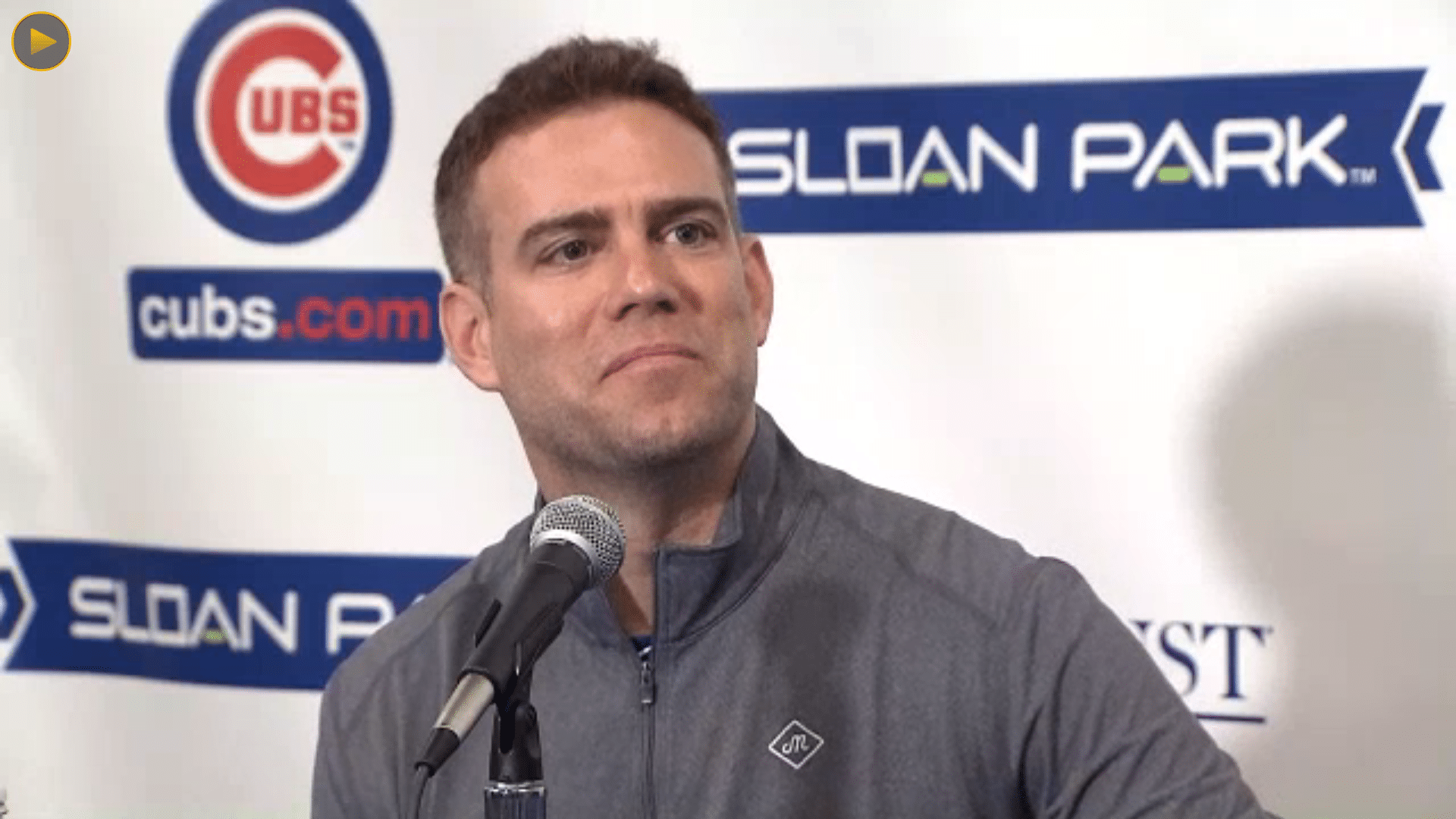
How We Can Apply Theo Epstein’s Front Office Lessons to Our Own Lives
Baseball is a pastime, but it continues to teach me nearly as much as I learned in school.
As a player, I learned the benefits of repetitive preparation, patience, controlled determination, and how mastering small details can net big advantages. Watching my teammates gave insight into human nature and dynamics, and my varied player-manager relationships taught me how to handle authority, both good and bad.
Nowadays, I am most fascinated by organizational lessons and how they might apply to my worklife. Theo Epstein’s expert helming of the Chicago Cubs offers myriad lessons for study and inspiration, so I wanted to share a few aspects of his approach that I reflect on continually.
Outperform your outside counterparts
Epstein regularly reminds his front office employees that every major league team has someone doing the same job as them. Their job, then, is to outperform those counterparts. This applies whether the role is fan-experience manager, assistant traveling secretary, strategic analyst, or community relations liaison.

I love this approach. First, it tells everyone, “Your job isn’t to suck up to me, be a yes man, or avoid making waves. You want to please me? Do your part to help us be baseball’s best front office in every way.”
Second, this challenges team members to critically study the competition. What do they do that we don’t? Why are they the gold standard in one particular area? What can I change about myself to catch up to and surpass the top performers in my job category?
And last, it tamps down destructive intra-office rivalries. Of course, some professional goals are inextricably zero-sum. Who gets a promotion or the biggest bonus? Who gets fired in lean times? But by largely focusing competitive drive outward, unproductive office back-biting is minimized.
Relentless, passionate innovation
Epstein exhorts his front office to continually ferret out new competitive advantages and market inefficiencies in order to create new leverage points. The Red Sox innovated bonus overslotting in the draft and recognized that high OBP can offset a slugging lineup’s high K rate.

In the early years of the Cubs rebuild, they uniquely leveraged their low payroll advantage to help re-stock the upper farm system faster. From 2012-14, the Cubs overpaid the market to sign rehabbing but flippable starting pitchers to one-year deals.
After these pitchers – Paul Maholm, Scott Feldman and Jason Hammel – turned in healthy and effective first halves, the Cubs traded them to contenders. This returned players like Jake Arrieta, Addison Russell, Pedro Strop, and Arodys Vizcaino, among others.
To similarly innovate in your own field requires scrutinizing old approaches and overlooked opportunities to create new value. Instead of baseball-specific market inefficiencies, look for low-hanging fruit in your own office or industry that is ripe for improving and leveraging. Or re-examine “common wisdom” and the “we’ve always done it that way” mentality to squeeze new value out of a tedious or rote assignment.
Other innovations may require a trickier A-to-B-to-C bank shot (like signing rehabbing pitchers to refill a farm system). More complex moves like this may require supervisory approval. However, I’ve found that by demonstrating initiative, thoroughness, and enthusiasm, even reluctant supervisors will green-light a new approach or pilot test.
Driven but joyful
Like most top executives, Epstein is tremendously driven. But sharing an infectious joie de vivre is essential in fields dependent upon teamwork and morale. And when that positive emotion is absent? Well, Epstein saw this firsthand in his final year with the Red Sox when top executives sucked the joy out by fighting over credit.

Moving to Chicago gave Epstein a chance for a reset. He’s returned to disappearing and spending the occasional late afternoon shooting both hoops and bull with the interns. In 2016, the organization chartered flights to fly as many employees – including the scoreboard operator – to Cleveland to enjoy the historic World Series title.
Epstein also uses humor to build connections (though that can sometimes go too far, as we’ll see below). Said former Red Sox lieutenant and Blue Jays GM Ben Cherington, “[Theo]’s got an intuitive sense for people and a sense of humor that allows others to see him as human.”
A cautionary negative
To avoid charges of fawnish hagiography, I’m careful to note Eptein is not perfect. Despite his smart, personable media appearances, some contemporaries have called him a world-class “dick” at times.
For example, he’s said to have a very strong frat-boy streak in an industry that happily enables bad-boy behavior. A major league clubhouse is also no place for thin skin, so Epstein’s ability to heartily give and take it with players wins him points there (Exhibit A: The recent prank feud with Tommy La Stella).
However, he can forget his place as boss and go too far to score a good alpha-male laugh. ESPN The Magazine reported that he once stood on a desk and read aloud a new employee’s overly earnest cover letter. The office roared in laughter, but Jed Hoyer later stepped in to make sure the embarrassed employee wasn’t too devastated.
But to Epstein’s credit (and as a last lesson), he usually owns up to his mistakes and quickly turns the page. For instance, he takes a share of blame for the end of his Red Sox tenure. Today, no bad blood exists between the Cubs and Red Sox, as evidenced by their end of spring training series in Florida this year. And that employee embarrassed by Epstein’s dramatic letter reading? Well, he not only stayed with Boston but now heads up their marketing efforts.
